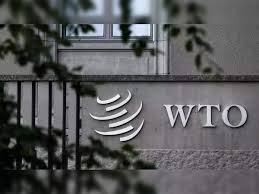SPS Agreement:

India and the US informed the World Trade Organization (WTO) that they have reached a mutually agreed solution on the outstanding dispute on poultry imports from Washington, thereby resolving all of their seven disputes at the global trade watchdog.
- The Agreement on the Application of Sanitary and Phytosanitary Measures (SPS Agreement) is a treaty of the World Trade Organization (WTO) that came into force with the establishment of the WTO on January 1, 1995.
- It sets out the basic rules for food safety and animal and plant health standards.
- SPS measures must be based on scientific principles and sufficient evidence, except for provisional measures.
- Members are encouraged to align SPS measures with international standards set by bodies like Codex Alimentarius, OIE, and IPPC.
- SPS measures of other countries should be accepted as equivalent if they achieve the same level of protection.
- Countries must conduct risk assessments to determine the appropriate level of protection, considering the impacts of pests or diseases.
- Members should recognize pest- or disease-free areas and areas of low prevalence, even if within a single country or group of countries.
- Countries must notify changes in SPS measures and provide regulatory information through the WTO’s SPS notification system.
- These disputes can be taken to the WTO’s Dispute Settlement Body (DSB) if consultations fail.




